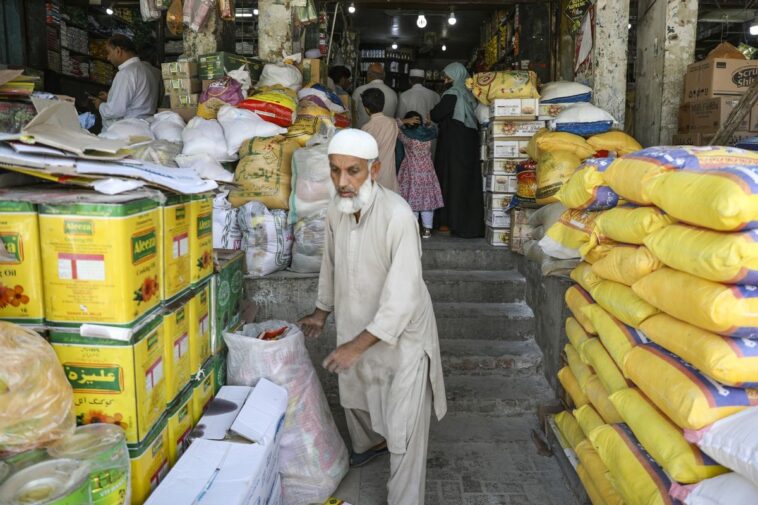Islamabad: Onion, chicken, eggs, rice, cigarettes, and fuel prices increased substantially during the previous week, according to official data released on Friday, driving weekly inflation to over 40 percent for the first time in over five months, as reported by the Dawn.
The Pakistan Bureau of Statistics (PBS) reported that although week-to-week inflation eased marginally, it remained high as bananas, poultry, sugar, cooking oil, gasoline, and cigarettes became more expensive.
Consequently, short-term inflation, as measured by the Sensitive Price Indicator (SPI), increased to 41.54 percent year-over-year for the week ending February 23, up from 38.42 percent the previous week.
The price increase represents the greatest annual increase since the week ending September 8, 2022, when SPI inflation reached 42.7%. And for the first time since September 15, when the reading was 40.58 percent, it was above 40 percent.
The Dawn reported that prices for scallions, chicken, eggs, cigarettes, and fuel have increased the most.
The weekly inflation rate decreased to 2.78 percent from 2.89 percent the previous week. 33 of the 51 monitored items saw price increases, six saw price decreases, and 12 items’ prices remained stable.
The previous reading of 2.89 percent was the highest since October 27, when the change in the SPI was 4.13 percent, according to official data.
Onions (372%), cigarettes (164.7%), gas (108.38%), chicken (85.7%), diesel (81.36%), eggs (75.81%), Irri 6/9 rice (75.41%), broken basmati rice (74.16%), bananas (72.22%), washed moong pulse (69.87%), and gasoline (69.87%) were the items whose prices increased the most compared to the same week a year ago during the period under review
In contrast, the lowest-income category experienced the greatest year-over-year price declines for tomatoes (-67.93%), chilli powder (-7.32%), and electricity (-3.42%). (-6.64pc).
For the lowest-income group, gas prices increased by 108.4 percent, cigarettes by 76.45 percent, bananas by 6.67 percent, chicken by 5.27 percent, sugar by 3.37 percent, cooking oil five-litre tin by 3.07 percent, vegetable ghee 2.5 kilogramme pack by 2.79 percent, vegetable ghee 1 kilogramme pack by 2.2 percent, and prepared tea by 1.18 percent.
Onions -13.84 percent, eggs -5.5 percent, tomatoes -4.23 percent, garlic -3.03 percent, LPG -0.81 percent, and gramme pulse -0.22 percent were the products whose prices decreased the most in comparison to the previous week.
In January, the Consumer Price Index (CPI) indicated a headline inflation rate of 27.6 percent. Under IMF conditions, the government has taken stringent measures that are likely to further chill the economy and fuel inflation.
The government has already taken a number of steps, including the adoption of a market-based exchange rate, an increase in petroleum and electricity prices, the elimination of subsidies, and an increase in taxation, in order to generate revenue to close the budget deficit.
Also read: No G20 Joint Statement After China Opposes “War” Over Ukraine
According to Dawn, the lender is still in negotiations with Islamabad over power sector debt and a prospective increase in the policy rate, which is presently 17%.
The country’s foreign exchange reserves have dwindled to around USD 3 billion, barely enough for three weeks of imports, as its economy has been in disarray and it urgently needs external financing.
This week, China announced a USD 700 million refinancing, which was received by the State Bank of Pakistan on Friday.




